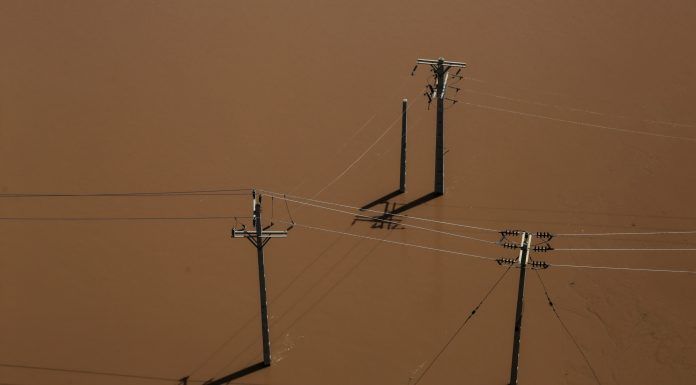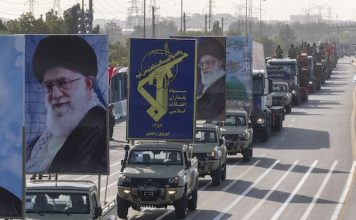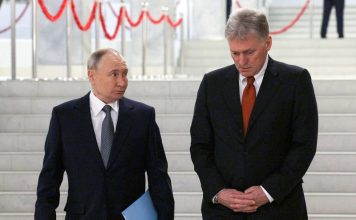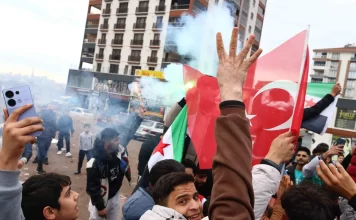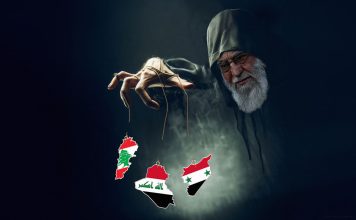The director of Iran’s Department of Environment (DoE) Isa Kalantari has said the public must reduce its gas consumption or face frequent power outages.
In comments reported by the Tehran-based Tejarat News on Jan. 4, Mr. Kalantari explained: “Our nation could expect electricity shortage, or we may be forced to use fuel oil [heating oil, kerosene]. People must either reduce their gas consumption or use heating oil.”
“A significant increase in household gas consumption during the winter months has caused a severe drop in gas supply to industries and power plants,” Kalantari noted. “Industries and power stations, which produce electricity, cannot operate without gas, so they may have to use heating oil.”
“There are some exceptions regarding the use of heating oil,” Kalantari said. “The Headquarters for Fighting Coronavirus has banned the use of heating oil in major cities, including Tehran, Karaj, and Isfahan. However, other cities will be forced to use heating oil because of the gas shortage.”
Some government officials have disputed Kalantari’s assertion that the gas consumption will increase in the winter months significantly. They argue that the coronavirus pandemic has reduced energy consumption because of school closures, reduced working hours, and a sharp drop in big cities’ traffic volume.
There are some 220 small power stations in Iran, many of which have halted operations in the past few days. Some officials at the Ministry of Energy have said power stations had to suspend operations because they did not have fuel. However, according to these power plants’ managers, the problem is caused by the Tavanir Electrical Manufacturing Company, which has not paid its bills.
Many privately owned small power stations are on the verge of bankruptcy. The disruption in the national power grid and electricity supply stems from the government’s failure to pay thermal power plants in time.
In comments reported by the government’s ICANA news agency on Jan. 13, the spokesperson for the Energy Committee of the Majlis (Iranian Parliament), Malek Shariati Niasar, said: “We are not experiencing exceptionally wintry days that would cause unprecedented gas usage. The current situation is caused by the government, even if the gas and energy companies are not willing to accept responsibility.”
“It is unclear why we should experience a power outage and gas shortage, given that schools and universities are closed, and most offices and businesses operate on reduced hours,” Mr. Niasar, who represents Tehran, Ray, Shemiranat, Eslamshahr, and Pardis electoral districts noted. “In our experience, people consume more electricity in summer than in winter. We normally have a surplus of electricity in the winter.”
Mohammad Asgari, the spokesperson for the National Iranian Gas Company, has also dismissed the reports on increased gas consumption.
In an interview with the Young Journalist Club (YJC) news agency on Jan. 12, Mr. Asgari said: “The department in charge of gas distribution has investigated the issue, and concluded that the disruption in electric power plants has nothing to do with gas supplies.”
Some people have claimed power outages were caused by cyberattacks, which the government has denied. There is no evidence to support these claims. Others have said the outages had been caused by the massive export of electricity to Iraq, which, even if true, would not cause a significant drop in the fuel supply to the power stations.
Meanwhile, the media have reported on Iranian energy companies’ efforts to use revenue from the sale of electricity to mine bitcoin (cryptocurrency).
On Jan. 8, Kayhan London reported that many government agencies had imported equipment for mining bitcoins. These devices use a massive amount of electricity. The electricity shortage had caused a sharp increase in the consumption of fuel oil.
Bitcoin mining is performed by high-powered computers that solve complex computational math problems.
In 2018, Iran recognized cryptocurrency mining as a legal industry.
In comments reported by Doniya-e Eghtesad newspaper on Sept. 22, 2020, the managing director of the Thermal Power Plants Holding Company Mohsen Tarztalab, said: “Revenue generated from the sale of electricity produced by the expansion turbines at the Ramin (natural gas-fired) Power Plant in Ahvaz, capital of the southern province of Khuzestan, and Neka and Shahid Mohammad Montazeri (steam-powered) Power Plants in the central province of Isfahan, will be invested in farming bitcoins.”
“Volatile foreign exchange market and lack of pricing guideline for the sale of electricity to the public have caused a massive discrepancy between the revenue and expenditure in the country’s electric power industry,” Mr. Tarztalab explained. “The cabinet and the Ministry of Energy have ordered us to use our expansion turbines to produce bitcoins.”
On Jan. 10, Tejarat News reported that the Iran and China Investment Development Group had been active in the Rafsanjan Special Economic Zone, in south-central Iran, for more than a year. The report added that the group had set up a bitcoin mining operation in the region.
In comments reported by the Iranian Students News Agency (ISNA) on Jan. 14, the Tavanir Electrical Manufacturing Company’s managing director, Mohammad Hossein Motevalizadeh, said: “We have urged those involved in mining bitcoins to halt their operations which helps to stop power outages. The Chinese companies have also stopped mining bitcoins.”
“Bitcoin farming halted for two weeks at the Rafsanjan facilities,” Mr. Motevalizadeh added. “Iran uses 3.8 percent of all the bitcoin mining in the world. Based on the current model, it takes anywhere between 500 and 600 megawatts to generate that volume of bitcoin.”
Meanwhile, the Iranian authorities have seized many illegal digital bitcoin mining devices in recent months.
On Dec. 30, the Tehran-based Borna News reported that police in the northern province of Gilan had seized 800 illegal bitcoin mining devices, worth $90 million.
“We received a tip about the illegal bitcoin farming operation at a private company in Rasht,” the chief of police of the northern province of Gilan commander Azizollah Maleki was quoted by Borna as saying. “We carried out a raid and seized 800 bitcoin mining devices worth $90 million.”
The significant spike in the consumption of fuel oil has increased air pollution in Tehran.
The World Bank released a report in 2018 titled “Air Pollution in Tehran: Health Costs, Sources, and Policies,” which said: “Tehran is one of the most air-polluted cities in the world. It is ranked 12th among 26 megacities in ambient [outdoor] PM [particular matter] levels. After Cairo, Tehran is the most polluted non-Asian megacity. Our research has shown that slightly over 4000 people die prematurely from ambient PM2.5 air pollution in Tehran per year.”
“It’s not only about deaths: there are also many instances of respiratory and cardiovascular disease, among other illnesses, that could be avoided if Tehran were to move towards cleaner air,” the report noted. “Mortality and morbidity because of the current level of air pollution in Tehran are estimated to cost the city’s economy about $2.6 billion per annum.”
“The preponderance of PM emissions in Tehran originates from mobile sources. The largest share of PM emissions, roughly 70 percent, originates from mobile sources (vehicles),” the report explained. “The rest stems from non-traffic related emissions: 20 percent from energy conversion (including refineries and power plants), 7 percent from industries, 2 percent from household and commercial sources, and 1 percent from gas terminals.”
“Cars are the most abundant vehicle category,” the report added. “There are about 4.24 million vehicles in Tehran. Cars are the largest vehicle type, with a total fleet of 3.37 million, or 80 percent of all vehicles.”
The Iranian Energy Ministry rolled out its plan to conserve electricity last week. It called for a scheduled power outage in the provinces of Tehran (north), Golestan (north), Gilan (north), Alborz (north), Markazi (central), Isfahan (center), Khuzestan (south), Semnan (north central), Qom (north), Ardabil (northwest), and East Azerbaijan (northwest).
This article was translated and adapted from Persian by Fardine Hamidi.
[contact-form][contact-field label=”Name” type=”name”][contact-field label=”Email” type=”email”][/contact-form]

